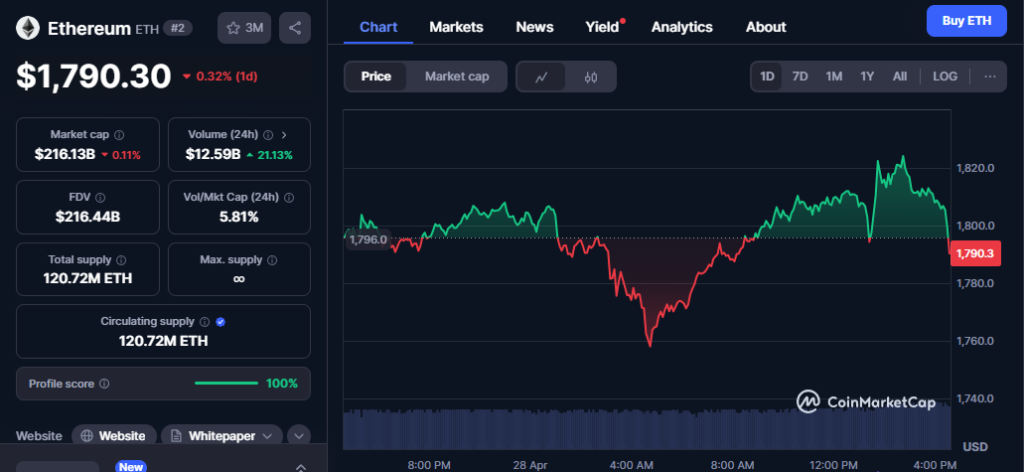- Ethereum’s EIP-9698 proposal aims to increase the gas limit 100-fold over four years, potentially boosting transaction throughput to 2,000 TPS.
- This gradual, predictable growth plan ensures scalability while remaining fully backward-compatible with existing clients.
Ethereum’s scalability has long been a hot topic, with critics pointing to its limited transaction throughput compared to competitors like Solana. But with the introduction of Ethereum Improvement Proposal (EIP)-9698, the Ethereum network could be on the verge of a breakthrough, increasing its transaction throughput to 2,000 transactions per second (TPS). Here’s what you need to know about this groundbreaking proposal.

What is EIP-9698?
Proposed by Ethereum Foundation researcher Dankrad Feist, EIP-9698 is designed to exponentially increase Ethereum’s gas limit, with the goal of scaling the Ethereum mainnet to handle more transactions. The proposal calls for a 100-fold increase in the gas limit over the next four years, potentially enabling the network to support up to 2,000 TPS.
Currently, Ethereum’s gas limit is set at 36 million, which supports a modest 14-20 TPS. While this number is functional for most use cases, it pales in comparison to competitors like Solana, which can handle upwards of 1,000 TPS. By raising Ethereum’s gas limit to 3.6 billion, EIP-9698 aims to improve scalability, ensuring the network can accommodate around 6,000 transactions per block.
Also read: Pepe Coin Price Prediction: Will PEPE Surge to New Heights by May 1st, 2025?
How It Works: A Predictable Growth Plan
Feist’s proposal introduces a “deterministic gas limit growth plan.” This structured approach will raise Ethereum’s gas limit gradually, based on a preset schedule. The gas limit will increase by a factor of 10 approximately every two years, based on the epoch of the Beacon Chain. These increments will continue over the next four years, allowing time for client-side adjustments and hardware improvements.
The key advantage of this approach is predictability. Instead of relying on miner/operator voting, which can lack coordination and lead to stagnation, EIP-9698 sets a clear, exponential path for Ethereum’s gas limit to grow in sync with the demand for scalability.
What Does This Mean for Ethereum?
If adopted, EIP-9698 could significantly enhance Ethereum’s competitive edge, closing the transaction throughput gap with other blockchain networks. The proposal is fully backward-compatible, meaning it won’t disrupt existing clients who choose not to implement the changes. This ensures a seamless transition for the wider Ethereum ecosystem.
Although some concerns about node strain exist—particularly regarding less-optimized nodes—Feist assures that the gradual increments will allow enough time for developers and node operators to adapt.
In conclusion, EIP-9698 is a forward-thinking proposal that could set Ethereum on a path toward achieving the scalability it needs to remain a dominant player in the blockchain space. With its predictable, exponential gas limit growth, Ethereum may finally be able to meet the demands of a growing decentralized ecosystem.




